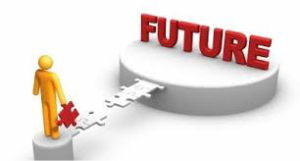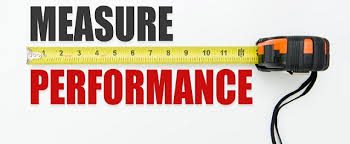 January 2025
January 2025
Failing to foresee change is a skill lacking in the best of condo boards.

Many of the best companies in the world fail in this regard. Firestone, Kodak and Blockbuster were all industry leaders. Each failed to envision how technology would change their business. Blockbuster relied on renting DVDs by mail, ignored the internet and went bankrupt. Kodak allowed others to develop the digital film market and also went bankrupt. Firestone was more fortunate. They failed to respond effectively to the introduction of radial tires and merged with Bridgestone. These industry leaders lacked the second-order thinking needed to adapt.
First-order thinking is the process of considering the intended and more obvious implications of a decision or policy change. Second- order thinking is the process of asking “then what.” It involves determining and unraveling the implications of first order impacts, typically by creating “what if” scenarios. Side effects or unforeseeable results are less prevalent among those who practice second-order thinking.
We see a lack of second-order thinking in political leadership. After imposing sanctions on Russia over their invasion of Ukraine, political leaders decided they were a mistake and weakened restrictions on Russian oil and gas. Without access to this oil and gas, much of Europe, and the rest of the world, cannot function.
In high-rise communities, effective condo boards are able to foresee problems before others. These people are not visionaries. They have a different decision-making process that includes asking more questions and thinking things over before making a decision. They maintain records that can be analyzed to identify concerns before they become obvious to others. And they monitor trends in window repairs, water leaks, security concerns, rule infractions and operational details.
Condominium communities, like many other organizations, deal with far too much paper for it to be manageable. They rely on document collection and management technology to handle these volumes and develop actionable information. High-rise condominium communities are fortunate to have multiple condominium management software solutions to choose from. All are designed to reflect the best practices in residential management, and offer similar basic features. The better systems make it easier to more effectively analyze information and manage communities.
The basic features of this technology and benefits should be important to all condominium communities.
Paper Reduction
There is a high cost to generating paper and its distribution. Every e-mail, service request and communication should be stored for easy access since there is no way to know in advance what documents will have to be tracked down in the future. Storing such a vast amount of paper and searching records for needed information is time consuming. There is no practical way to categorize paper records for easy access and to compile a knowledge base from print communications.
Storing these records in electronic format so they are easily searched, reproduced and redistributed resolves many problems.
Service Requests and Concerns
Residents are the early warning system of problems. Water, odour, noise, security, ventilation and cleanliness problems all typically start with a few isolated concerns. Technology allows management to address these concerns while keeping residents updated on the status of their query. Worsening problems become evident when the volume of service requests or concerns increase. Technology tracks and reports on this so directors and management have a greater awareness of what occurs in a building. There is a greater opportunity to deal with matters while they are minor and impact on very few residents. An increasing number of reports on a particular issue is the first indication a minor matter is rising to the level where management or the board need to pay more attention.
General Management and Communication
Condominium communities require systems to communicate information to residents, internally track package deliveries, manage guest parking and book amenities. Condo management software provides these systems in an easy-to-use package.
Condominium management software provides an all-in-one set of tools designed specifically for condominium communities. Used effectively it is a comprehensive solution relied upon by management and directors. It improves the living experience for residents by offering convenience while making directors and management better informed about the property they manage.
 It is through second-order thinking that problems or concerns can be avoided. Condo management software is more than a general management tool. It is the solution for sifting through and analyzing the data that is generated daily. It leads to better management and enhanced decision making.
It is through second-order thinking that problems or concerns can be avoided. Condo management software is more than a general management tool. It is the solution for sifting through and analyzing the data that is generated daily. It leads to better management and enhanced decision making.







